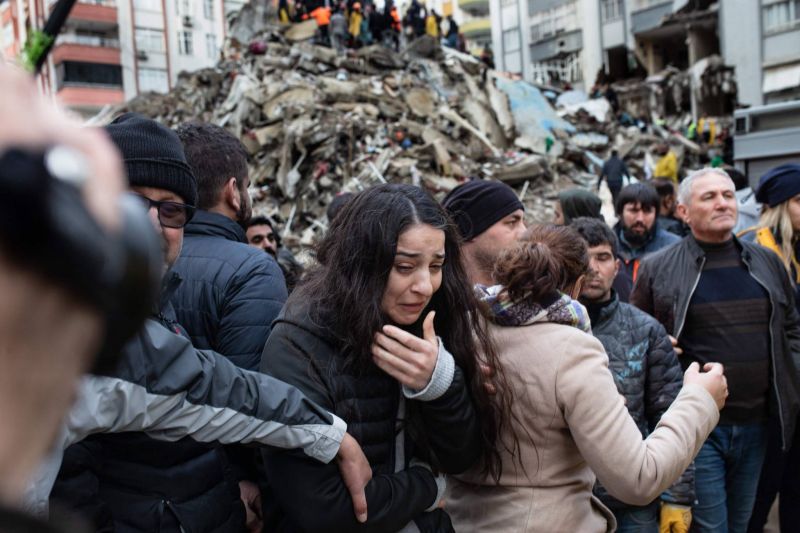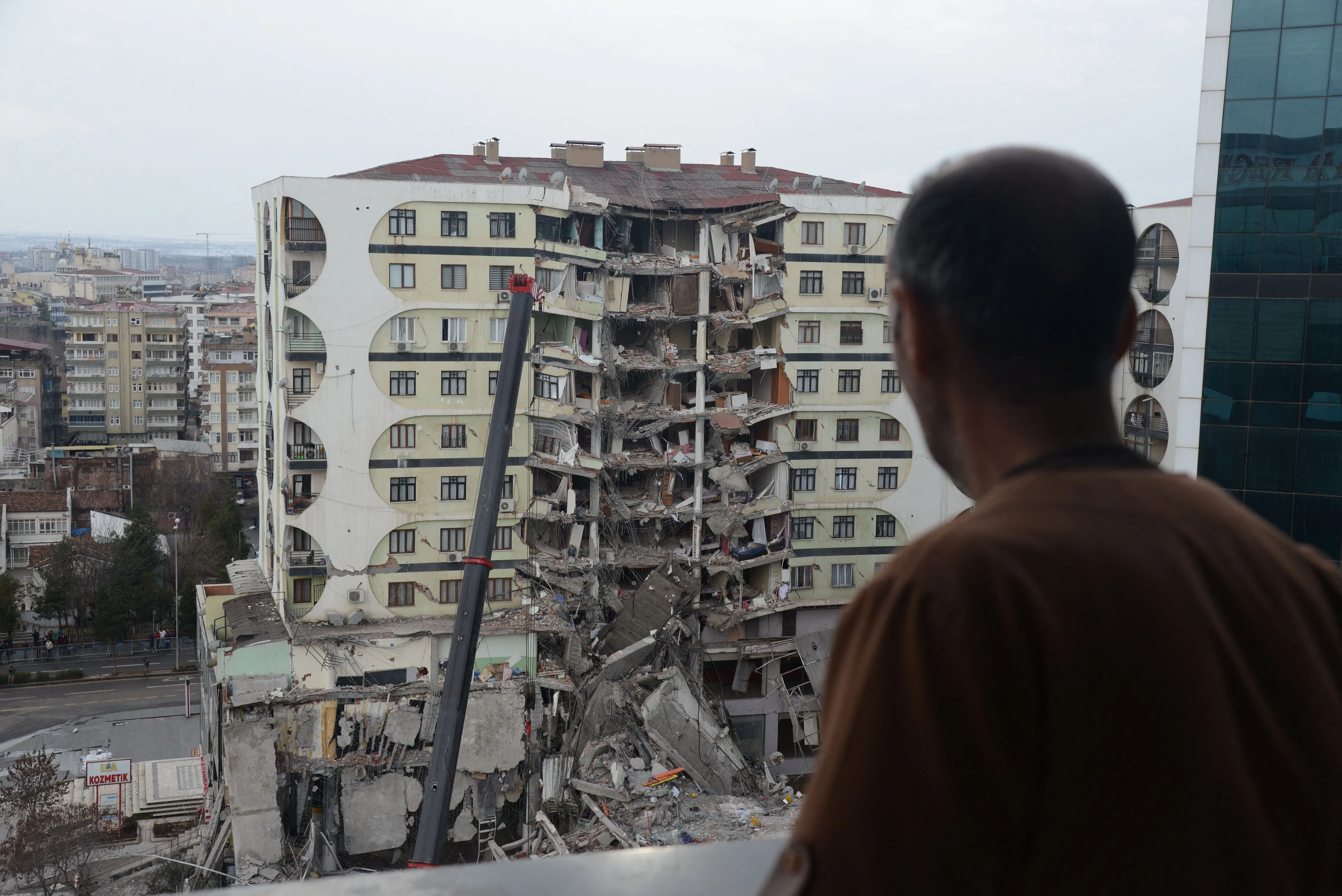
Rescuers search for survivors in the rubble of collapsed buildings in Adana after the 7.8 magnitude earthquake hit southeastern Turkey. (Credit: AFP)
Locked in his car with his wife and two children, Bassam* tries to recount the events that just occurred.
The Syrian family has lived in Gaziantep, southern Turkey, for several years after surviving the siege of Aleppo in 2016. They lost one of their newborn twins when their building in Syria collapsed.
"What happened last night was worse than all the bombing by Assad that we have experienced since the war started," says Bassam. “It kept shaking, I thought about my children, the war in Syria, my city Aleppo, it was a nightmare.”
The most devastating quake since 1999.
In the early hours of Monday morning, a 7.8 magnitude earthquake struck Turkey and neighboring Syria, with tremors recorded as far away as Greenland, according to the Danish Geological Institute.
As of Monday evening, 2,300 deaths were recorded between both countries. According to Turkish authorities, this figure includes 1,498 dead and over 7,600 injured in Turkey alone.
 A man in Diyarbakir looks at a building heavily damaged by the powerful earthquake that struck Turkey and neighboring Syria, February 6, 2023 (Credit: Ilyas Akengin / AFP)
A man in Diyarbakir looks at a building heavily damaged by the powerful earthquake that struck Turkey and neighboring Syria, February 6, 2023 (Credit: Ilyas Akengin / AFP)
The toll is likely to change depending on rescue operations, especially in the Turkish cities of Adana, Gaziantep, Sanliurfa and Diyarbakir. At least ten Turkish provinces were affected and over 2,800 buildings have collapsed.
The epicenter of the earthquake was in the Pazarcik district of the southeastern province of Kahramanmaraş, where over fifty aftershocks were felt.
According to the US Seismological Institute (USGS), the earthquake occurred at 4:17 a.m. local time, at a depth of about 17.9 kilometers.
Located on one of the most active seismic faults in the world, Turkey had not experienced such a devastating earthquake since August 17, 1999, when 17,000 people died, including a thousand in Istanbul.
A second tremor measuring 7.5 on the Richter scale was felt Monday at 1:24 p.m. local time- this time the epicenter was further north, near the town of Ekinözü, in Kahramanmaraş province.
This is the area where 32-year-old Osman Afşin lives. Afşin and his family are now safe.
"I helped someone who was asking for help and contacted the authorities to go to the scene. His family was trapped under the rubble," says this father of two. "We are living through a great disaster."
‘Assad's missiles’
Originally from the province of Idlib, northwestern Syria, Nabel — who lives in Kayseri, Cappadocia — is still in shock from the quake.
"Bashar al-Assad's missiles that were falling seem normal compared to what we experienced today," he said.
Since the 2011 Syrian Revolution and its bloody suppression by the Assad regime, southern Turkey has become home to millions of Syrian refugees.
Nabel was awake when the earthquake struck. He rushed out of his home "in the cold and snow" like many residents of southeastern Turkey. Despite freezing temperatures, many fled their homes in pajamas.
Due to harsh weather affecting the region in recent days, rescue operations were hindered. In particular, the snow paralyzed operations at the main airports around Diyarbakir and Malatya because of the snow.
Fearing aftershocks, the governor of Gaziantep province called on residents to gather outside despite the weather, while the head of Diyanet — Turkey's state-run religious body — called on people in need to seek refuge in mosques.
Public hospitals collapsed in Iskenderun and Adiyaman, near Gaziantep. Part of the city's Byzantine citadel, built in the sixth century, also collapsed.
Following the disaster, messages from Turkish internet users sharing the identity and location of people trapped under the rubble flooded Twitter, despite network problems.
"I just called my mother back to get news. She still can't reach her family in Hatay and Antakya directly, the phones don't work there," said Sezgin, who lives in Ankara where a weak tremor was recorded.
The government's disaster management agency (AFAD) posted appeals on social media to encourage those affected to install its app to help search for victims.
In many parts of the country, residents have mobilized to help rescue workers clear the debris.
Turkish authorities are urging people to donate blood and requesting that roads to the affected areas be kept clear for relief efforts to make way.
After Bassam and his wife rushed out of their apartment, his wife fell and hurt her knee. They went to a hospital and found it crowded with earthquake victims. Not daring to reenter an enclosed space, they preferred to wait outside despite the rain.
"My wife is very afraid to come back to the hall of our apartment," said Bassam. “As Syrians, we suffer constantly, all the time, everywhere."
*The first name has been changed. This article was originally published in French on L'Orient Le-Jour.